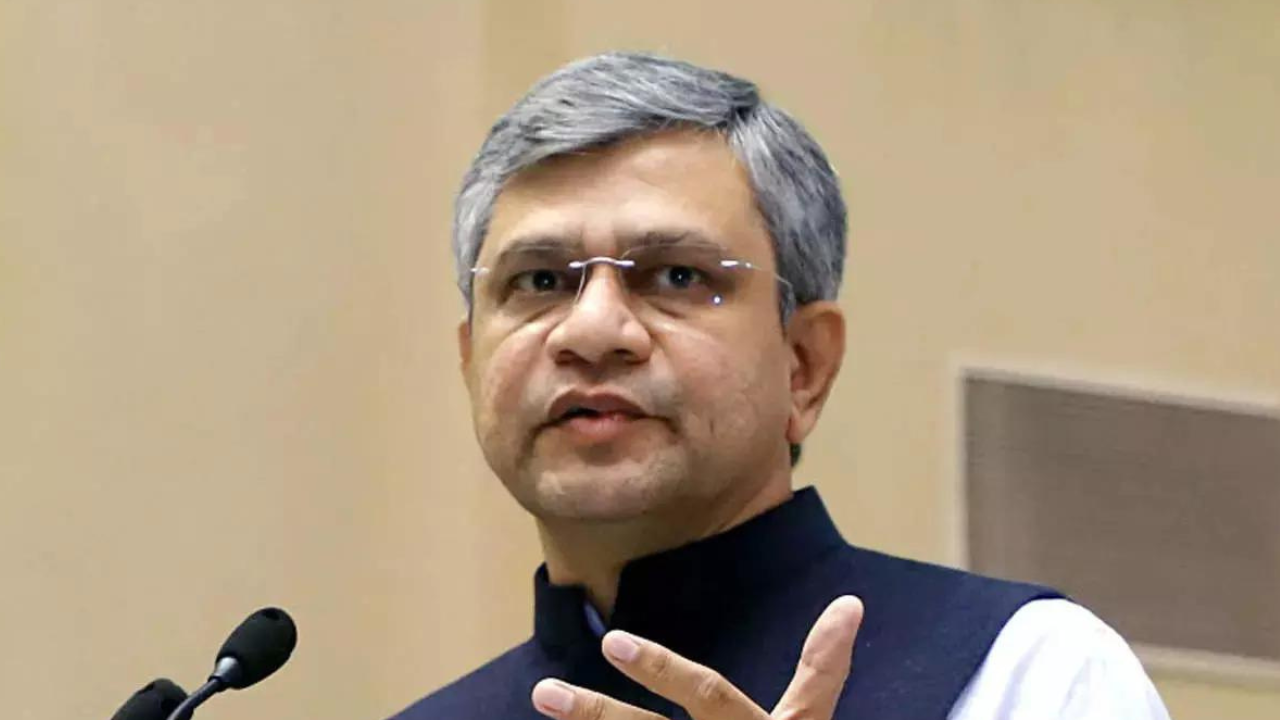New data bill draft almost ready, says minister; tech firms’ 5G wait grows longer

Ashwini Vaishnaw, the IT minister, announced that the government will offer a fresh draft after withdrawing the Data Protection Bill, 2019 from Parliament on Wednesday. Later, Vaishnaw informed us in an interview that the draft of a new bill was nearly finished and that the government would shortly release it for comments and approval.
Where to register for the ET Soonicorns Summit Swiggy employees can now work for others under new rules. Tech businesses would have to wait longer for direct 5G spectrum issuance.
According to Union IT Minister Ashwini Vaishnaw, the government will shortly make the draft of a new data privacy law available for public comment. According to Vaishnaw, 81 modification recommendations led to the withdrawal of the Personal Data Protection Bill, 2019, which was the subject of our conversation.
The data protection measure, which has been under discussion for several years, was withdrawn by the government on Wednesday. Vaishnaw said that a Joint Committee of Parliament that looked into the measure had given the administration 12 suggestions and 81 modifications. He said that it will now focus on creating a “complete legal framework” and presenting a new law.
Later, in an interview with ET, the minister stated that the updated IT Act, 2000 will also protect the fundamentals of the right to privacy.
Why was the bill withdrawn?
A Joint Committee of Parliament was given the bill, which it reviewed in detail and met with several stakeholders. A bill with 99 parts was suggested for 81 modifications by the JCP. They also offered 12 recommendations. So, taking everything into account, we had to draft a new bill.
What changes are expected in the new bill?
The fundamental ideas stay the same. Absolutely nothing has changed in that regard. It is more a matter of incorporating everything that has been suggested and ensuring that the legislation is properly crafted. Very soon, we will make it available for public comment. The Supreme Court’s ruling has not changed the fundamental tenants of the right to privacy.
Gov’t not be prepared, according to the bill’s original architect. The original personal data protection bill’s chair, Justice BN Srikrishna, informed us that he agreed with the accusations leveled against it. I’ve also provided input. I’ve identified a tonne of problems with the measure. “They seem to be reconsidering these arguments,” he remarked.
The truth is that they are unable to enact legislation addressing the protection of people’s data. According to a senior source, the government is considering the finer points of giving 5G spectrum to businesses directly and won’t make a decision until it has heard from legal and capacity experts.
Technology businesses that intend to build their non-public network (NPN) using the allotted 5G spectrum may have to wait longer than anticipated to launch it. Given that we must consider India’s legality and demand, direct assignment is highly complicated.
A very tiny and specialized sector is reserved for NPNs, even internationally, according to a senior government official.
According to what we know, there are just a few thousand NPNs on the entire planet. Therefore, it is likely that India will follow the same trajectory. According to officials, businesses that wish to establish an NPN soon can do so by leasing spectrum from a telecom service provider, an option that was previously open to businesses.
According to officials, businesses that wish to establish an NPN soon can do so by leasing spectrum from a telecom service provider, an option that was previously open to businesses.
It’s like a hurricane in a cup of tea. It is being overemphasized. According to a government source who wished to remain anonymous, “There is very little application, ecosystem, or demand-wise to justify the huge expenses that may be associated with NPNs.”
As we previously reported, L &T Technology Services was eager to acquire the 5G spectrum, as we previously reported, to develop use cases and roll out 5G solutions internationally for parent firm Larsen & Toubro. Private networks would assist Indian organizations in advancing their digital agenda, according to TCS Chief Operating Officer N Ganapathy Subramaniam, who spoke to us in June.
IT Mahindra CEO CP Gurnani recently told us that tech companies should be given “free spectrum” to set up private 5G networks, claiming that doing so will promote independence and make the sector more competitive on a global scale.




